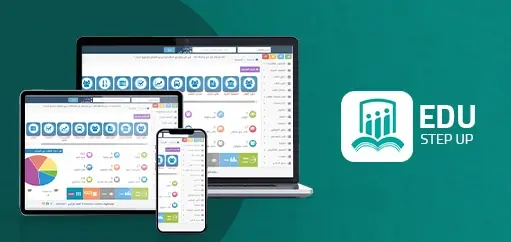
Thu 2024/03/07
Fundamentals of tax accounting in private schools
One of the most important goals of accounting in schools is to link financial information to each other, and to communicate it to several parties properly, and this data is properly achieved, and accountants organize this data into expenses, expenses, expenses, and work to control all financial matters within the school .
Many people who are interested in doing school accounts, whether it is an internal accountant or a school secretary, are concerned about the nature of accounting work in schools, whose work does not just depend on the salaries of teachers and employees, but extends to setting budgets for various school activities, dealing with taxes and insurance, and dealing with school expenses, which is the main resource inside the school.
During this article, we will learn about the nature of accounting work in schools, the tasks of an accountant within a school, and how to tax private schools.
The Concept of Accounting
Financial Accounting is one of the important means used by institutions and establishments to determine their financial position within the market, by providing accurate and expressive accounting information on the state of the economic institution, tabulated in the form of financial statements and periodic reports, which are useful to everyone interested in the institution, whether from inside or outside.
Financial accounting provides a set of financial information related to the company in an accurate, organized, and classified manner in the form of financial statements that benefit all customers of the institution, whether the investor, chambers of Commerce, Government agencies, or the owners of the company themselves so that they can form an economic vision and make an appropriate economic decision.
Financial accounting seeks to properly demonstrate financial operations and the International Accounting Standards, and to derive the result of the project's work from the profit, loss and operation of the project's financial position.
Tax accounting seeks to determine taxable net profit in accordance with the original income tax law and other amended laws and tax accounting begins in terms of financial accounting.
The nature of accounting in private schools
The accountant is the most prominent assistant for the management of the private school because of his ability to deal with all financial transactions and daily expenses within the school, whether income or expenses. He also provides financial information that helps the management make financial and administrative decisions. The internal accountant of the school is committed to several actions, including:
- Payroll works for all school staff, whether teachers, professionals, or administrators.
- Budgeting for all school activities such as school theatre activity, school trip activity, and home economics activity
- Restrict financial operations, in particular students' school fees, on a daily basis under financial receipts.
- monitoring of the school's expenses, whether purchases or sales, in a special register according to official invoices.
- Daily inventory work for the Treasury at the end of each working day; monthly inventory of financial records for validation.
- Making a budget for maintenance and determining depreciation ratios for the school's resources.
- Follow up on the service facilities inside the school, including the canteen and the restaurant, and record their accounts periodically.
- Dealing with banks in cases of financial deposit or disbursement of government checks
How private schools are taxed

The head of the Tax Authority announced the approval of Dr. Mohammed Mait, the minister of finance, to treat private schools whose annual turnover does not exceed ten million pounds as small enterprises.
The head of the department addressed a letter to the Association of Private School Owners at the Republican level on the need to reduce the tax burden on school owners and hold them accountable by 1% of the volume of workers in order to provide educational services at appropriate prices to parents and middle-income resources. The minister adopted the idea by treating private schools whose staff size does not exceed millions of pounds with special tax treatment like small businesses.
This decision will not only benefit Egypt's private schools but will also directly benefit the tax revenues collected from schools, as it preserves the financial rights of the state and prevents any attempts to evade paying taxes.
It will also be in the interest of more parents, as it will increase the efficiency of schools without burdening parents with an additional financial burden.
Accountant's duties in private schools
The accountant carries out many tasks in private schools, such as:
- Organizing and coordinating all documents prepared for disbursement
- Collect the school's revenues, then deposit them in the bank.
- preparing reports on the school's profit within a certain period of time.
- Prepare the monthly audit budget and submit it to the school administration.
- preparation and financial analysis of the financial reports of the school's financial accounts.
- Preparation of a report on bank reconciliations and monthly interviews for the bank's audit interviews.
- Perform financial audits, periodically and continuously checking financial records for validity.
- Supervise both the main financial documents and the school's accounting books by recording all accounting transactions in the books of the department.
- Authenticate all of the records and documents of the exchange and keep all of their authenticity in the department's books.
- Record day-to-day operations for school purchases and sales and retain invoices to validate these operations.
The nature of accounting work in private schools using accounting software
In the light of the current technological development in the world and the intervention of technology in various aspects of life and all activities, as well as the many programs dealing with all subjects, namely financial accounting programs, the school accountant can manage the school accounts through the school management system. Edu Step Up

The Edu Step Up school management system is not only administrative, but it is also able to process the accounting work of the school, starting with the salaries of employees and adding income and expenses, through a special list of accounts that includes a set of settings, which we summarize as follows:
List of School Accounts:
Where the tree of school accounts (assets, income, expenses, and liabilities) is selected and prepared.
Settings List:
It is a list that specializes in controlling the main or sub-account with the possibility of making adjustments at will and according to the nature of the account.
Add Store:
Through it, the name of the safe and the name of the main account are added.
Add a bank:
The name of the bank, the name of its main account, the bank account number of that account, and the account holder are added.
Account Receivable:
The bond number, receivable account name, method of payment (cash or checks), main and subsidiary account types, value, and statement are determined.
Cost Centers:
The name of the center is registered, the main branch is selected for it, and the bills of receivables and disbursements are transferred to the cost centers.
Account Payable:
It determines the number of the bond, the type of exchange deposit (cash or checks), the name of the exchange account, the type of its main and sub-account, its value, and its statement.
Daily Restrictions:
It is intended to record and know all the daily operations that occur at the school, so it enables you to easily make daily entries and internal adjustments to the school from one account to another.
Receivable and Payable Bonds:
You can specify the type of bond, whether to receive or disburse, and the possibility of linking more than one branch of the school to the same book with the possibility of directing it.
Account Statement:
The date is specified, and the account name is specified to display the creditor, debtor, and balance totals during the balance period.
Audit Balance:
The level is selected to display the balance of the creditor, debtor, and opening balance.
Opening balance:
The name and value of the account are determined, and the category of the balance is determined by the debtor or creditor.
Income statement:
The income statement is presented during a period to determine the financial position of the school.
Fiscal year:
You may specify the beginning and end of the school's financial year.
Features of the Edu Step Up school management system:
- an integrated web-based school system
- easy and convenient interface throughout working periods
- Complete protection of all school files and data from damage
- cloud storage system to protect and secure school data
- Automatic periodic copying and recovery system when any error gets
- The system is available in many languages, the most important of which are Arabic and English.
- The system works on all desktop and mobile devices and on all browsers.
- Full support for the school's website and mobile application
- The system is developed with the latest ASP technologies, the C# programming language, and the SQL Server database.
- The program contains a professional power distribution system for all sanctions and all users of the system.
- The system has a dynamic account tree up to six levels that enables you to add all the items in the budget.
- Assistance in preparing the general tax budget for private schools
- Calculation of income and expenses for the school
- and much more.
Develop your school using an integrated web-based management and accounting system that helps you manage all school departments quite easily. Order the Edu Step Up system demo for free now.
Leave Comment















Comments